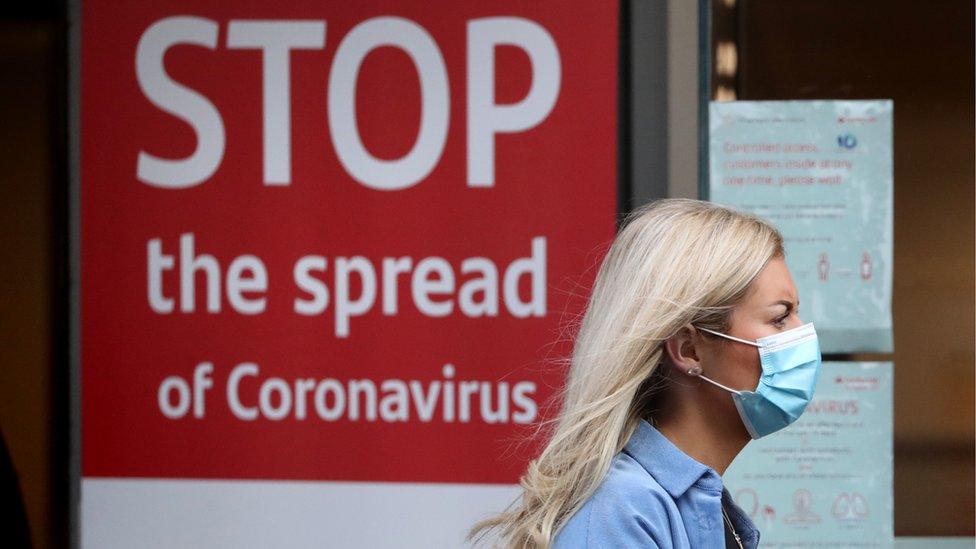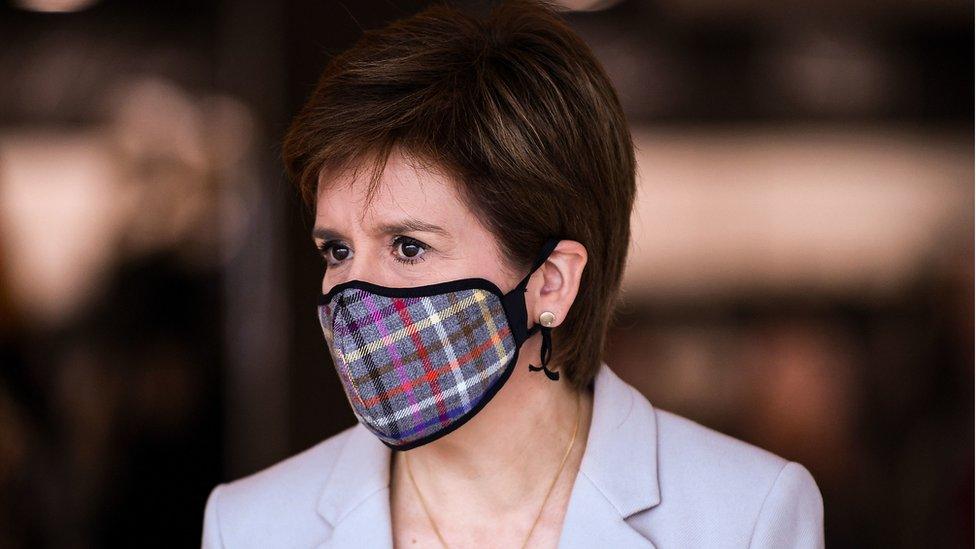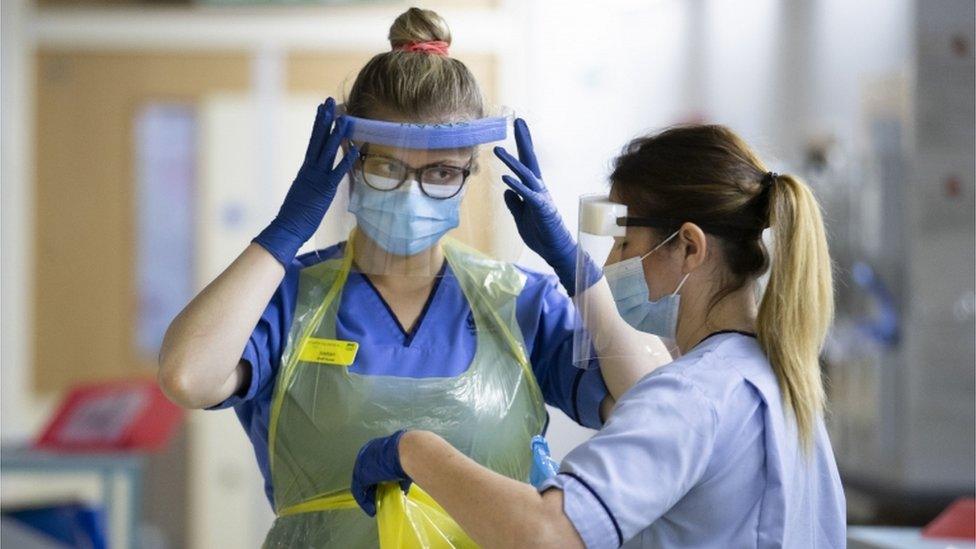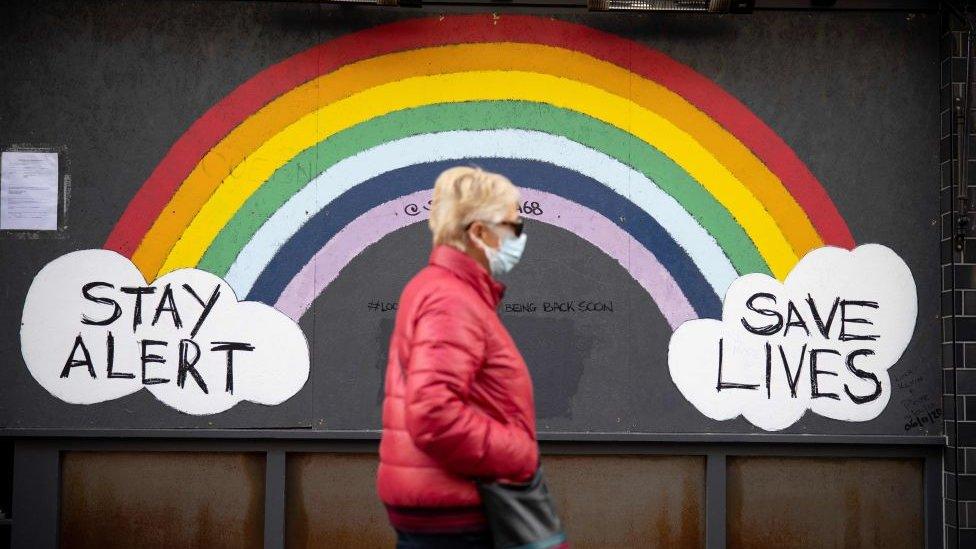Why is the UK Covid Inquiry coming to Scotland?
- Published

The UK Covid Inquiry will sit in Edinburgh from next week
The UK Covid Inquiry will sit in Scotland for the first time this week.
Politicians and key decision makers charged with guiding the country through the pandemic will appear at the probe in Edinburgh for the next three weeks.
It is the first time the hearings, chaired by Baroness Hallett, have taken place outside of London since it began in August 2022.
The investigation is separate from the Scottish Covid Inquiry, but will feature some of the same people.
Why is the UK Covid Inquiry sitting in Scotland?
The inquiry was set up to explore how the UK handled the pandemic as a whole.
That means it covers all four devolved nations as well as the UK government, with separate sessions also to be held in Belfast and Cardiff.
The Scottish session will cover the political decisions made in Scotland during the pandemic.
A total of 12 sessions will be held at the Edinburgh International Conference Centre (EICC) between 16 January and 1 February.
It will question politicians and health officials about the handling of the outbreak, but members of the public have also been encouraged to give their own testimony to the inquiry.
Ben Connah, the secretary to the inquiry, said it was a "listening exercise" to gather the views from everyone affected by the pandemic.
"We think it is really important to hear from people in their own backyard," he told the BBC's Good Morning Scotland programme.
"We've heard plenty from people in Westminster and London about what was happening there, now we want to hear from people across the UK."
Who will appear at the Inquiry?

Former first minister Nicola Sturgeon has already given evidence to the UK Covid Inquiry
Anyone involved in decision making or the response to the outbreak could be called to give evidence.
Former First Minister Nicola Sturgeon and her then-deputy John Swinney have already appeared at hearings in London, and are expected to face further questions in Edinburgh.
Former health minister Jeane Freeman and national clinical director Prof Jason Leitch are also expected to give evidence.
So too are others involved in the political and public health response, including officials who worked on the delivery of vaccines.
Catherine Calderwood, who was forced to resign as Scotland's Chief Medical Officer after being spotted visiting her second home in Fife during the first lockdown, has been excused from giving evidence for health reasons.
Campaign groups supporting those who lost loved ones during the pandemic will be called to give evidence.
What will they be asked?
In November, the Scottish government handed over more than 14,000 electronic messages - mainly WhatsApps - to the inquiry.
It came after the counsel to the inquiry, Jamie Dawson KC, said that 70 Scottish government figures, operating in a total of 137 messaging groups, had been asked for their WhatsApp messages.
He he said "very few appear to have been retained" - despite an order not to destroy messages being issued.
The messages that were subsequently handed over included those of Humza Yousaf.
But Ms Sturgeon - his predecessor as first minister - refused to confirm whether her messages from that time period had been deleted, although she said she had "nothing to hide".
It is very likely that key political figures will be asked about the messages when they appear before the inquiry.
They are also likely to be questioned about claims by the former Prime Minister Boris Johnson that differing messaging from the UK and devolved administrations confused the response.
During his evidence at the inquiry last year former UK health secretary, Matt Hancock, also criticised Ms Sturgeon for what he described as "unhelpful communications".
How is it different to the Scottish Covid Inquiry?
While the UK investigation covers the whole country, the Scottish Covid Inquiry only explores policy areas under the control of the Scottish government.
For example, the UK inquiry will investigate decisions taken over which vaccine strategy to pursue for the whole of the UK.
The Scottish inquiry does not cover which jabs were bought, but will look at the delivery of the vaccination strategy in Scotland.
The two investigations have agreed, where possible, not to sit at the same time when they are considering evidence relevant to both to try and cut down on any confusion for the public.
How can I tell the inquiry about my experience of the pandemic?
While the inquiry will focus on political decision making, contributions from the public have also been welcomed.
Every Story Matters, the online portal, external set up by those behind the probe, allows submissions from anyone relating to the pandemic itself or the lasting impact it has had on their lives.
Mr Connah said: "It's a listening exercise and it is an opportunity for anyone across the UK.
"It helps us build a picture of how the pandemic affected everyone."
- Published24 October 2023

